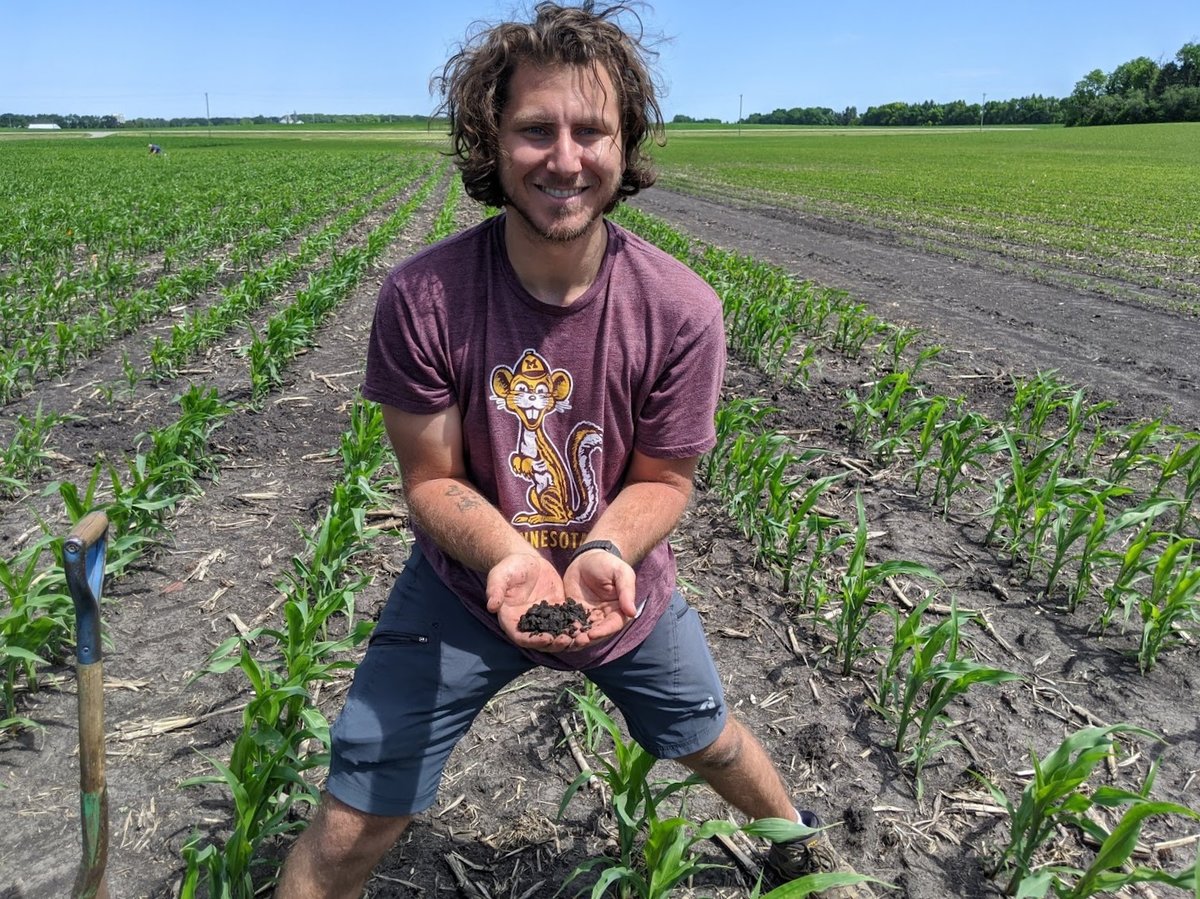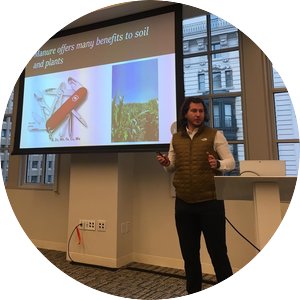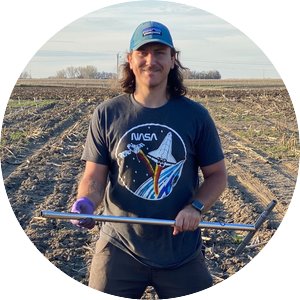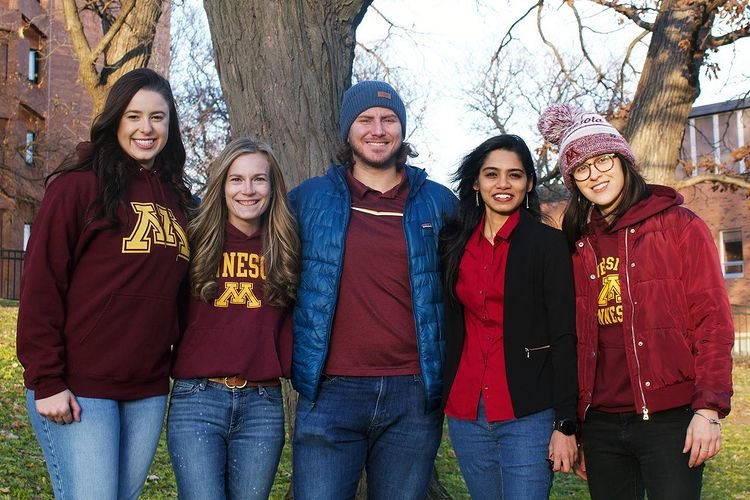By partnering with Congress and private industry, PhD candidate Manny Sabbagh is tackling soil health challenges.

Manny Sabbagh is committed to sustainability, and he believes that soil has a role to play. A PhD candidate in the Graduate Program in Land and Atmospheric Science, he is developing best practices for using cover crops and manure to improve soil quality on land used to grow crops like corn. These techniques can be implemented by farmers to reduce soil erosion and add nutrients and organic matter to the soil.
In February, Sabbagh traveled to Washington, D.C. as part of a cohort of fellows supported by the Foundation for Food and Agriculture Research (FFAR). FFAR was established by Congress as part of the 2014 Farm Bill and signed into law by President Obama. The program develops leaders in the fields of food and agriculture through a three-year fellowship with an emphasis on professional and career development. A flagship component of the training is the weeklong trip to Washington. The agenda includes workshops in science communication, science policy, and learning about careers in the U.S. Department of Agriculture.
FFAR Fellows are graduate students with a range of expertise relevant to food, agriculture, and sustainability. Sabbagh’s area of expertise is soil health, one of the challenge areas identified by FFAR. Soil needs nutrients to grow healthy crops, and cover crops and manure are two tools that, when used correctly, can provide those nutrients. Manure acts as a soil fertilizer, adding nitrogen, phosphorous, and potassium to the soil. In addition, manure also provides micronutrients and helps increase microbial activity which can enrich the soil. “Microbes are our greatest tools to having a healthy soil. They help with nutrient cycling, they help with soil stability, and so forth.”
But proper manure management (how much is used, when and how it is applied) is important “because too much of a good thing can be a bad thing,” says Sabbagh. Excess manure can pollute water and the air. The goal of his research is to provide the most benefit to the soil and the farmers, while protecting other natural resources.
Each Fellow is sponsored by a company or organization, which matches the funding provided by the FFAR program. Sabbagh is supported by the Minnesota Corn Research and Promotion Council, an organization that advocates for farmers and invests in research that promotes soil health and water quality. The collaboration between academia and industry is an aspect that attracted Sabbagh to the program, and he sees the sponsorship as a mentoring opportunity. “We share common interests of improving agronomic output by providing producers the tools and knowledge to do so in a way that is more environmentally friendly,” says Sabbagh.
Talking the talk

During their week in Washington, the fellows learned from science communication expert Melissa Marshall, who gave them techniques for delivering talks with greater impact. She challenged them to use visuals creatively, instead of relying on text and dense figures. The fellows put this advice into practice by presenting a 10-minute talk about their area of expertise, and providing each other with feedback.
In his talk, Sabbagh uses an image of the Swiss army knife as a metaphor for manure: a single tool with multiple benefits. “I thought it was a pretty cool way of delivering my messages,” said Sabbagh. He was able to see the effect his presentation had in action, when fellows were able to recall aspects of his soil health research more readily than in other presentations he made.
From medicine to manure

Sabbagh can trace the spark of his passion for sustainability all the way back to kindergarten. “I was a kind of a weird kid; once I learned about recycling and reusing things instead of throwing away the trash, I thought that was a really cool thing to do.” That interest intensified when he attended a science camp in the San Gabriel mountains in his home state of California. There he learned about composting, or “recycling food” as he saw it.
In college, Sabbagh was on track to become a physician. Sabbagh has type 1 diabetes, and wanted to become a pediatric endocrinologist to support children growing up with the disease. As an undergraduate at University of California, Berkeley, Sabbagh majored in molecular environmental biology and took the MCAT, the entrance exam for medical school. But things changed when he came across the book Dirt: The Erosion of Civilizations by David R. Montgomery. “It exposed me to how impactful soil science and agronomy is to solving the climate problems that we're facing.”
Instead of applying to medical school, Sabbagh sought out graduate programs that would let him explore his curiosity for soil science and sustainability. He attended the University of Tennessee, Knoxville where he earned a master’s degree. Sabbagh studied cover crops and their rates of nitrogen release and how they affect various soil nitrogen pools. His PhD work here at the University of Minnesota continues this work, and integrates manure into the mix.
Finding community on campus

While he continues to progress through his PhD program, Sabbagh plans to further develop the soft skills he learned in D.C. As LAAS program representative and treasurer of the CFANS Graduate Student Board, he is already involved in leadership and networking among the students, administration, and alumni. He plans to continue to work on his science communication skills through speaking engagements and writing for a broad audience.
Sabbagh plans to continue being an active part of the campus community at all levels. “I’m really happy to be part of CFANS and the Department of Soil, Water, and Climate. It has been an awesome journey so far. I feel really proud that I'm a U of M student.”
